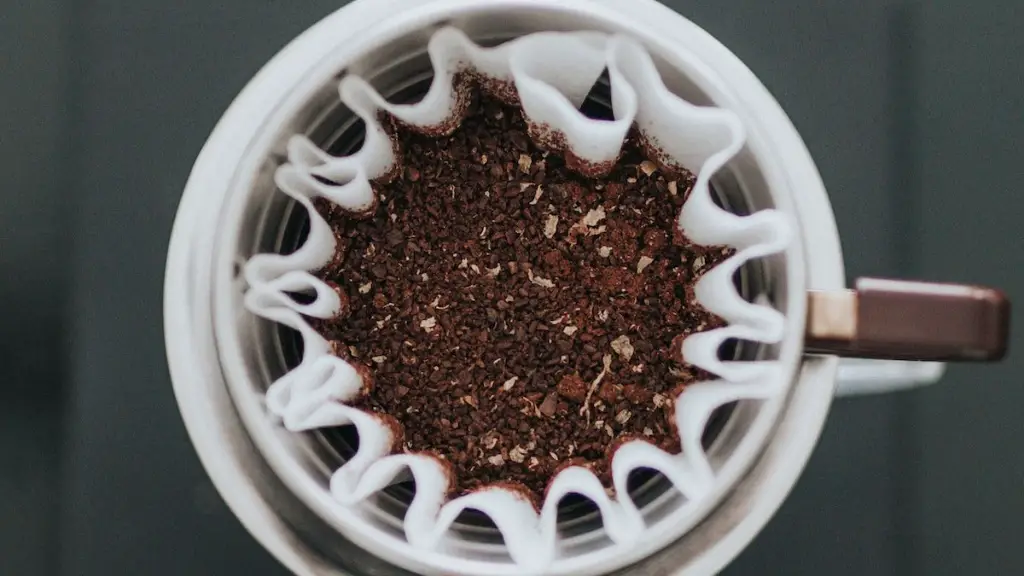What Happens When You Drink Too Much Coffee While Pregnant?
For many people, a hits of caffeine can be a great way to get your day started, but when you’re pregnant, you really need to pay closer attention to how much of it you’re consuming. Too much caffeine can have a detrimental effect on your unborn child, but what happens when you drink too much coffee while pregnant?
According to the Centers for Disease Control and Prevention, pregnant women can safely consume up to 200 mg of caffeine per day. That’s the equivalent of about two eight-ounce cups of Coffee, one to three energy drinks, or six ounces of brewed tea. Consuming any more than that could potentially increase the risk of miscarriage, stillbirth, preterm birth, and low birth weight.
Other research has suggested that high caffeine intake can also be linked to issues with fetal growth, pre-eclampsia, and heart issues in newborns. A study from the Linus Pauling Institute found that women who consumed more than 500mg of caffeine a day had an increased risk of miscarriage, while another study from the National Institute of Health reported that consuming more than 450 mg of caffeine during a pregnancy was associated with an increased risk of stillbirth.
In addition to these risks, there may also be an increased risk of birth defects, especially when caffeine intake is combined with other substances such as alcohol. The amount of caffeine in a cup of coffee can vary widely, depending on the blend, type of coffee beans, and how it’s brewed. A home brew can have anywhere between 95 and 200 mg of caffeine, while an espresso shot can have as much as 150 mg.
In terms of energy drinks, the amount of caffeine can vary greatly, depending on the brand and size of the can. It’s important to read the label carefully, to make sure you’re not ingesting more caffeine than you should be. Tea, meanwhile can contain between 25 and 90 mg of caffeine per cup, depending on the strength of the brew.
Overall, it’s best to minimize caffeine intake during pregnancy. If you’re someone who regularly consumes coffee or other caffeinated drinks, try to reduce your intake significantly and consider switching to decaffeinated versions of your favorite products. If you don’t want to give up caffeine completely, try to stick to one or two cups of coffee a day and avoid energy drinks altogether.
Should Coffee Be Avoided Altogether During Pregnancy?
When it comes to pregnant women, there is no definite answer as to whether or not coffee should be avoided altogether. According to the American College of Obstetricians and Gynecologists, it’s perfectly safe for an expectant mother to consume small amounts of caffeine. But because the risks associated with consuming too much caffeine can be quite serious, it’s important to be aware of how much you’re drinking and to not exceed the recommended daily limit.
If you’re worried about your caffeine intake, talk to your doctor or midwife to discuss what’s best for you and your unborn child. Already drinking a lot of coffee? Don’t worry — research suggests that cutting back on caffeine intake over the course of a pregnancy can reduce the risk of adverse effects.
What Other Benefits Could Coffee Drinking Provide During Pregnancy?
Though research suggests that pregnant women should limit their caffeine intake, coffee does offer a few potential benefits. For one, it can provide a boost of energy on particularly fatigued days, which many pregnant women experience. Additionally, it may help with digestion, containing soluble fiber and other compounds that can help keep your digestive system regular.
Some research has suggested that coffee can even reduce the risk of developing type 2 diabetes during pregnancy, as well as certain types of cancer. However, it’s important to note that these benefits may only occur with moderate consumption. Too much caffeine can negate any potential benefits.
At the end of the day, it’s important to be mindful of how much caffeine you’re consuming while pregnant. Try to stay within the recommended daily limit and, if possible, aim to reduce your intake over the course of the pregnancy.
What Are Alternatives to Coffee During Pregnancy
If you’re looking to cut down on your caffeine intake while pregnant, there are a few options that can provide a much-needed energy boost. For one, you can try herbal teas such as peppermint, ginger, or chamomile tea — though some teas do still contain caffeine, so be sure to check the label.
Another option is to drink green tea, which contains only about 35 mg of caffeine per cup. Finally, you could try almond milk or coconut milk, both of which contain zero caffeine. But if you’re going to stick with coffee, be sure to monitor your caffeine intake carefully and switch to decaf when possible.
How Does Caffeine Affect the Body During Pregnancy?
Caffeine, like any drug, can have a variety of effects on the body. It’s metabolized differently in a pregnant woman than in a non-pregnant woman, and much of the caffeine actually crosses the placenta and makes its way to the fetus. Additionally, caffeine can increase your blood pressure, narrow your blood vessels, and stimulate your heart rate — all of which can have a negative effect on you and your baby.
Still, not all research paints a negative picture. Some studies have suggested that moderate consumption of caffeine (under 300 mg per day) might not have any negative effects on the baby. However, the risks associated with caffeine intake during pregnancy still outweigh the potential benefits, so it’s best to err on the side of caution and stick to decaf or an alternative option.
Are Caffeine Alternatives Safe During Pregnancy?
Yes, there are a number of safe alternatives to coffee during pregnancy. Herbal teas are a great substitute for coffee, as are green tea and almond milk. Additionally, you can try sparkling water with a splash of fruit juice or coconut water with a squeeze of fresh lemon.
Iced coffee drinks and frappuccinos may seem like a good idea, but they can contain a lot of sugar and other unhealthy ingredients. So, if you’re looking for an energy boost while pregnant, opt for something healthier instead.
What About Caffeine in Other Foods?
Caffeine isn’t just found in coffee — it’s also present in chocolate, energy drinks, soft drinks, and even some medications. So, if you’re pregnant and trying to cut back on your caffeine intake, be sure to take a look at labels and check the caffeine content of your favorite snacks and beverages.
Keep in mind that the caffeine content of chocolate can vary widely depending on the type and amount of cocoa used, so it’s important to be aware of exactly how much caffeine you’re consuming. Additionally, it’s important to check any medications you’re taking — some prescription and over-the-counter drugs contain caffeine, so consult with your doctor first.
What Are the Recommended Guidelines for Caffeine Intake During Pregnancy?
According to the Centers for Disease Control and Prevention, pregnant women can safely consume up to 200 mg of caffeine per day. That’s the equivalent of about two eight-ounce cups of coffee, one to three energy drinks, or six ounces of brewed tea. Consuming any more than that could potentially increase the risk of miscarriage, stillbirth, preterm birth, and low birth weight.
Though caffeine intake may be safely limited during pregnancy, some medical experts recommend avoiding it altogether. Talk to your doctor or midwife to discuss what’s best for you and your unborn child. And if you do choose to continue consuming caffeinated beverages while pregnant, monitor your caffeine intake and aim to stick to the recommended daily limit.





